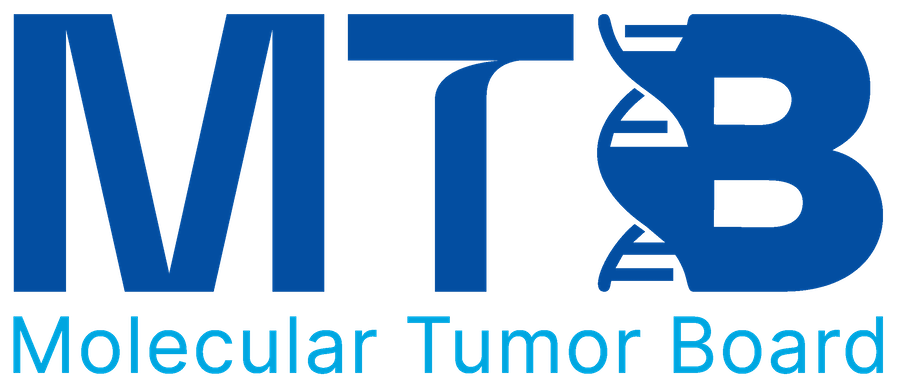ABOUT ME
SCHOLARSHIPS & HONORS
- Cornell Center for Vertebrate Genomics Fellowship (summer stipend), 2014
- Vietnam Education Foundation Fellowship, U.S Congress (predoctoral funding), 2012-14
- ASEAN undergraduate scholarship (4 years of full college tuition and stipend), 2007-11
- The Vertebrate Genomics Scholar, Cornell University, NY, 2014
- Dean’s list, National University of Singapore, 2007-11
- Gold Medal, 38th International Chemistry Olympiad, South Korea, 2006
CONFERENCES
- 2018 American Thoracic Society International Conference, San Diego, CA, USA. Oral preview and poster presentation.
- 2016 Experimental Biology, San Diego, CA, USA. Travel awardee. Poster presentation.
- 2014 16th International Congress of Endocrinology & The Endocrine Society’s 96th Annual Meeting & Expo (ICE/ENDO), Chicago, IL, USA. Oral preview and poster presentation. Presidential poster competition winner & Outstanding abstract awardee.
- 2013 The American Society of Cell Biology (ASCB) annual meeting, New Orleans, LA, USA. Poster presentation.
HIGHLIGHTS
- Broad knowledge and experience in interdisciplinary research: strong foundation in the areas of mitochondrial bioenergetics, lipid metabolism, immunology and endocrinology; broad skill set in genetics, molecular and cellular biology and animal disease models.
- Self-motivation and independence in leading research projects and managing a team: from conceiving ideas, designing and executing experiments to data analysis and publishing.
- Solid experience in collaboration and teamwork: collaborated with scientists in different labs/fields, directly mentored research technicians, graduate and undergraduate students from research to publications.
SKILLS & TECHNIQUES
- Molecular biology: PCR, gel electrophoresis, molecular cloning, gene knockout: CRISPR/Cas9, gene knockin: lentiviral transduction, site-directed mutagenesis, RT-PCR, western blot
- Cellular biology: Cell culture (cell lines; primary cell isolation: preadipocytes, adult microglia, mixed glia, peritoneal macrophages, hepatocytes). Cell fractionation, different cell transfection techniques
- Biochemistry: Protein crosslinking, immunoprecipitation, Seahorse analyzer, ELISA, various colorimetric assays
- Microscopy: Confocal microscopy, transmission electron microscopy, flow cytometry, FACS, fluorescent recovery after photobleaching (FRAP)
- Histology: Immunocytochemistry, immunohistochemistry, other stainings (H&E, neutral lipids, collagen, iron deposits etc)
- Animal study: Mouse breeding, genotyping, in vivo dosing (IP, SC), tissues harvesting. Various disease models.
- Data analysis: Transcriptomic, proteomic and metabolomic data analysis. Basic knowledge in Linux and R programming
TEACHING EXPERIENCE
- Graduate Teaching Assistant, Department of Animal Science, Cornell University, 2014-16
- Domestic Animal Anatomy and Physiology (3 semesters)
- Ethics and Animal Science (1 semester)
- Won Graduate Student Award for Teaching Excellence, Cornell University, 2015
- One of the two best teaching assistants in College of Agriculture and Life Sciences
EDUCATION & TRAINING
TIMELINE
2007
2007 – 2011
B.S.
B.S. (Pharmacy), National University of Singapore
- First class honors
2012
2012 - 2017
Ph.D.
Ph.D., Cornell University, Ithaca NY
- Advisor: Dr. Vimal Selvaraj. Field: Molecular and Integrative Physiology
2017
2017 - 2018
Postdoc
Postdoc, University of Pittsburgh – The Aging Institute, Pittsburgh PA
- Advisor: Dr. Ana Mora. Field: Lipid metabolism
2018
2018 - 2020
Postdoc
Postdoc, University of Washington – Seattle Children’s Research Institute, Seattle WA
- Advisor: Dr. Vishal Nigam. Field: Immunology
RESEARCH EXPERIENCE
Systemic inflammation and organ damage after cardiopulmonary bypass surgery in pediatric patients – Nigam lab, Seattle Children’s Research Institute
Surgical repair of congenital heart defects requires support of cardiopulmonary bypass (CPB) in which blood is pumped through an artificial circuit at high shear stress to maintain organ perfusion. Pediatric patients have high morbidity and mortality after CPB with unknown mechanism. Exposure to CPB causes dysfunction in the heart, brain, kidneys, lungs, and other organs.- Uncovered that the CPB-associated systemic inflammation in pediatric patients is primarily driven by monocyte activation. Demonstrated for the first time that the molecular mechanism of shear stress-activated inflammation is via calcium signaling pathways: MEK/ERK/AP-1 and Calcineurin/NFAT. Targeting these pathways by FDA-approved drugs such as FK506 (Tacrolimus) significantly blunted the inflammatory response.
- Elucidated the novel mechanism how CPB-associated inflammation contributes to postoperative organ damage: a subpopulation of activated monocytes infiltrates into tissues and dies by necroptosis. Neutralizing TNFα by Adalimumab-equivalent antibody could prevent this mode of damaging cell death, potentially ameliorating the organ damage.
- Provided the first comprehensive view of global transcriptional changes in the striatum (the region of the brain involved in decision-making, reward cognition and motor functions) after deep hypothermic circulatory arrest, a form of CPB, using a piglet CPB model. Demonstrated strong activation of both inflammatory and apoptotic signaling pathways in the striatum after CPB. NF-kB was identified as an upstream regulator of majority of the upregulated genes, hence a novel target to be tested for beneficial effects on neurologic outcome.
- Published 2 research papers
Defective fatty acid oxidation in alveolar type II cells promotes senescence and lung fibrosis – Mora lab, University of Pittsburgh
- Analyzed metabolomics data from human lung tissues and uncovered that with age, glycolysis increases while lipid metabolism, specifically mitochondrial fatty acid oxidation (FAO), declines. In idiopathic pulmonary fibrosis – the disease which predominantly affects the elderly population, FAO deteriorates specifically in alveolar type II cells as characterized by reduced expression of the key FAO protein CPT1A.
- Demonstrated for the first time that loss of CPT1A function in alveolar epithelial cells caused cellular senescence and expression of profibrotic factors. Pharmacological inhibition of CPT1A promoted the development of lung fibrosis in a mouse model. This provides the basis for therapeutic manipulations of alveolar epithelial cell metabolism as a novel treatment against lung fibrosis.
- Paper under preparation (pending more human data).
Mitochondrial dysfunction in pulmonary arterial hypertension – Mora lab, University of Pittsburgh
- Demonstrated that PINK1 deficiency caused severe mitochondrial dysfunctions in human pulmonary artery endothelial cells (PAECs), making the cells more fragile and susceptible to injuries. This helps to further understand the etiology of pulmonary arterial hypertension.
- Poster presentation at the American Thoracic Society International Conference.
Molecular function of the translocator protein in physiology and pathology – Selvaraj lab, Cornell University
Translocator protein (TSPO) is a highly conserved protein from bacteria to human. Its expression is dysregulated in many different diseases, making it an attractive therapeutic and diagnostic target in human medicine. However, its exact function remains unclear.- Refuted the 25-year-old dogma that TSPO was not involved in mitochondrial cholesterol import for steroid hormone biosynthesis using knockout mouse model and CRISPR/Cas9 – mediated knockout cell lines. Effects of commonly used TSPO ligands on steroid hormone production were shown to be non-specific and likely off-target effects. (Press release: http://www.jbc.org/content/289/40/27455).
- Demonstrated the true molecular function of TSPO in tetrapyrrole homeostasis at the cellular level; the impact of TSPO loss/gain of function on lipid metabolism, particularly mitochondrial fatty acid oxidation, and neuroinflammation at the whole animal level.
- Published 5 research papers, 3 reviews and 1 commentary.
Metabolomics of a non-obese nonalcoholic fatty liver disease model in mice – Selvaraj lab, Cornell University
- Mice fed high fat, high cholesterol, cholate diet for 3 weeks developed hepatic pathology similar to nonalcoholic fatty liver disease (NAFLD) without changes to body weight. Using lipidomics and metabolomics, demonstrated that mechanisms leading to steatosis and hepatitis in this non-obese NAFLD model were a combination of effects directed by elevated free cholesterol, cholesterol esters and cholic acid, and changes to metabolism of sphingomyelins and phosphatidylcholines. This provides one of the first metabolite reference profiles for interpreting effects of dietary and hepatic cholesterol in human non-obese NAFLD patients.
- Published 1 research paper. Received the NIH metabolomics pilot grant.
Protein-protein interaction and subcellular localization profiles of paraneoplastic Ma antigen family of proteins – Yu lab, National University of Singapore
- Established subcellular localization and protein-protein interaction network of all PNMA proteins. Demonstrated the biological significance of the interaction between PNMA-2 and -4 that inhibited ubiquitination and proteasomal degradation.
- Selected as 2nd best honor thesis project in Department of Pharmacy.
Pharmacodynamic & pharmacokinetic profiles of drug candidates – GlaxoSmithKline, Center for research in cognitive & neurodegenerative disorders, Singapore
- Performed in-vivo (mice & rats) pharmacodynamic assays in different disease models. Assisted in developing new animal models to study blood brain barrier integrity. Performed pharmacokinetic assays using HPLC-MS/MS machine.
Anti-proliferative activity of electrophilic compounds and inhibition of thioredoxin reductase – Chew lab, National University of Singapore
- Systematically tested the anti-proliferative activity of 20 electrophilic compounds and their ability to inhibit thioredoxin reductase in breast and colorectal cancer cell lines.
- Synthesized a novel hit compound with strong anti-cancer activity.
- Published 1 co-authored paper. Selected for oral presentation at the department symposium.
PUBLICATIONS
UPDATED SEP 2021
Total citations: 669 – Peer-reviewed research papers
- Tu LN, Hsieh L, Kajimoto M, Charette K, Kibiryeva N, Forero A, Hampson S, Marshal J, O’Brien J, Scatena M, Portman M, Savan R, Benner C, Aliseda A, Nuri M, Bittel D, Pastuszko P, Nigam V (2021). Shear stresses associated with cardiopulmonary bypass induces expression of inflammatory cytokines and necroptosis in monocytes. JCI Insight. 6(1):e141341.
- Tu LN, Timms AE, Kibiryeva N, Bittel D, Pastuszko A, Nigam V, Pastuszko P (2019). Transcriptome profiling reveals NF-kB-mediated activation of inflammation and apoptosis in the striatum after deep hypothermic circulatory arrest in neonates. J Thorac Cardiovasc Surg. 158(3):882-890.
- Pillai VV, Siqueira LG, Das M, Kei TG, Tu LN, Herren AW, Phinney BS, Cheong SH, Hansen PJ, Selvaraj V (2019). Physiological profile of undifferentiated bovine blastocyst-derived trophoblasts. Biol Open. 1;8(5). pii: bio037937.
- Tu LN, Showalter MR, Cajka T, Fan S, Pillai VV, Fiehn O, Selvaraj V (2017). Metabolomic characteristics of cholesterol-induced non-obese nonalcoholic fatty liver disease in mice. Scientific Reports. 7(1):6120.
- Tu LN, Zhao AH, Hussein M, Stocco DM, Selvaraj V (2016). Translocator protein (TSPO) affects mitochondrial fatty acid oxidation in steroidogenic cells. Endocrinology. 157(3):1110- 21.
- Zhao AH, Tu LN, Mukai C, Sirivelu MP, Pillai VV, Morohaku K, Cohen R, Selvaraj V (2016). Mitochondrial translocator protein (TSPO) function is not essential for heme biosynthesis. J Biol Chem. 291(4):1591-603.
- Tu LN, Zhao AH, Stocco DM, Selvaraj V (2015). PK11195 effect on steroidogenesis is not mediated through the translocator protein (TSPO). Endocrinology. 156(3):1033-9.
- Tu LN, Morohaku K, Manna PR, Pelton SH, Butler WR, Stocco DM, Selvaraj V (2014). Peripheral Benzodiazepine Receptor/Translocator Protein Global Knockout Mice are Viable with no Effects on Steroid Hormone Biosynthesis. J Biol Chem. 289, 27444-27454. Featured as “Paper of the Week” and on the cover.
- Gan FF, Kaminska KK, Yang H, Liew CY, Leow PC, So CL, Tu LN, Roy A, Yap CW, Kang TS, Chui WK, Chew EH (2013) Identification of Michael acceptor-centric pharmacophores with substituents that yield strong thioredoxin reductase inhibitory character correlated to antiproliferative activity. Antioxid Redox Signal. 19(11):1149-65.
Review papers and commentaries
- Stocco DM, Zhao AH, Tu LN, Morohaku K, Selvaraj V (2017). A brief history of the search for the protein(s) involved in the acute regulation of steroidogenesis. Mol Cell Endocrinol. 5;441:7- 16.
- Selvaraj V, Tu LN (2016). Current status and future perspectives: TSPO in neuroendocrinology. J Endocrinol. 231(1):R1-R30.
- Selvaraj V, Tu LN, Stocco DM (2016). Crucial role reported for TSPO in viability and steroidogenesis is a misconception. Commentary: Conditional steroidogenic cell-targeted deletion of TSPO unveils a crucial role in viability and hormone-dependent steroid formation. Frontiers in endocrinology. 18;7:91.
- Selvaraj V, Stocco DM, Tu LN (2015). Minireview: translocator protein (TSPO) and steroidogenesis: a reappraisal. Mol Endocrinol. 29(4):490-501.
 Lan N Tu
Lan N Tu
- [Action required] Your RSS.app Trial has Expired. 12 Tháng Năm, 2024Your trial has expired. Please update your subscription plan at rss.app. - (WtYc6E87bfpqEt9Q)rss.app




